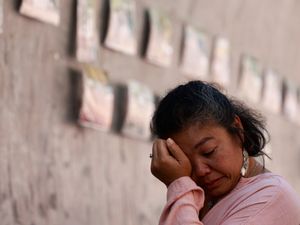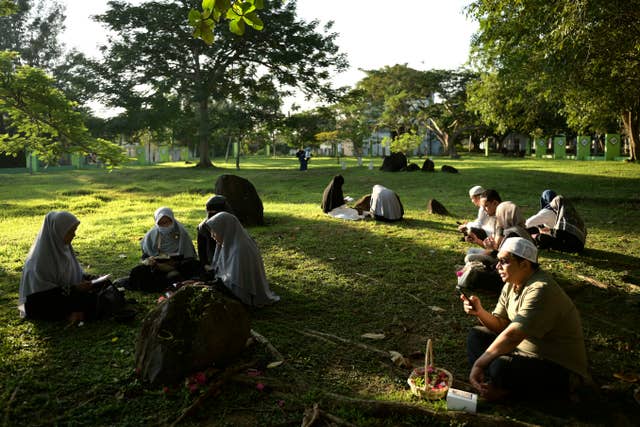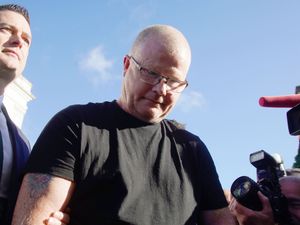Victims and survivors of Boxing Day tsunami remembered 20 years on
A 9.1 magnitude earthquake beneath the Indian Ocean on December 26 2004 triggered the tsunami.

Victims and survivors of the Boxing Day tsunami are being remembered 20 years on from the disaster.
A 9.1 magnitude earthquake beneath the Indian Ocean on December 26 2004 triggered the tsunami which killed more than 200,000 people.
The Prime Minister was among those paying tribute, saying his thoughts are with the “millions of people who were affected”.
Sir Keir Starmer tweeted: “Today marks twenty years since the devastating Indian Ocean tsunami that took the lives of so many.
“My thoughts are with those who lost loved ones and the millions of people who were affected by the disaster, as well as all those who helped with the recovery.”
In Indonesia people gathered in Ache province to mark the anniversary, including in Ulee Lheue village, where more than 14,000 unidentified and unclaimed victims are buried.
About 230,000 people died in 14 countries across south-east and southern Asia, and as far as eastern and southern Africa after the disaster.
Daniel Poole was on a surfing trip to Sri Lanka when the waves crashed into the “idyllic” guesthouse he was sharing with his now wife.
Mr Poole, now aged 44, said: “I leapt out of bed to the window and pulled back the old bit of fabric serving as a curtain to see a great wall of white water, as tall as our single-storey building, rolling up over the wave we surfed and then crashing up the beach.”
“It wouldn’t stop,” added Mr Poole, who lives in Perranporth, Cornwall.
“My wife can’t swim, so I spun around to grab her.
“The very next second the wave smashed through the front wall.
“The last I saw of that room was the roof dropping down on us before we were washed out through the rear wall of the building, the compound wall, across a ditch, road and 150 metres into the jungle before surfacing again.
“It was just white water and chaos.”
Mr Poole said he and his partner managed to get out of the water after scrambling on to a pile of debris wrapped around a tree.
He said: “I managed to throw her on the debris but I got knocked underneath it.
“Miraculously, I was flushed right through it and popped up the other side.
“I climbed up to her, and we watched as all that was once a dense jungle became the sea.”

In the days that followed, Mr Poole and other tourists who had survived the tsunami worked together to reach embassies in Colombo, the capital of Sri Lanka, and return to their home countries.
Nearly two million people were left homeless and 1.7 million displaced, with inhabitants of the coastlines of Indonesia, Thailand, India and Sri Lanka suffering the brunt of the devastation.
Surviving the wave and experiencing the desperate conditions of the immediate aftermath led Mr Poole to seek work in the humanitarian sector, hoping to “give back” some of the help he received.
Now an emergency co-ordinator with disaster relief charity ShelterBox, Mr Poole said the Boxing Day tsunami had a significant impact on how non-governmental organisations and governments deal with disasters.
Rachel Harvey, from near Totnes in south Devon, had been working as a foreign correspondent in Jakarta, Indonesia, for about two years when the earthquake struck.
She described the “apocalyptic scenes” she saw when she travelled to the coastal city of Banda Aceh to cover the aftermath.
“We got into Aceh two days after the tsunami hit and none of us was prepared for what we witnessed,” she said.
“The first couple of days, we were around the main city – or what was left of it – of Banda Aceh, and that was apocalyptic.
“Buildings completely destroyed, piles of rubble, boats in places they shouldn’t naturally have been, dead bodies everywhere… Things your brain is almost refusing to process.”





